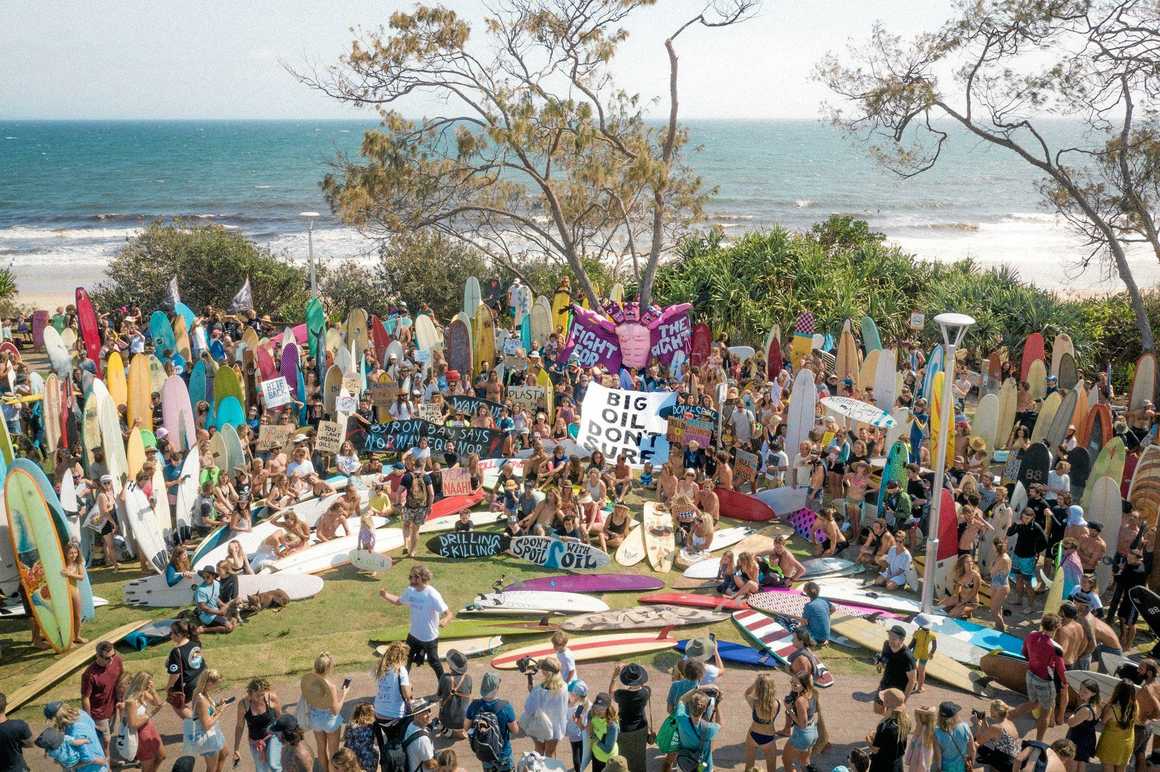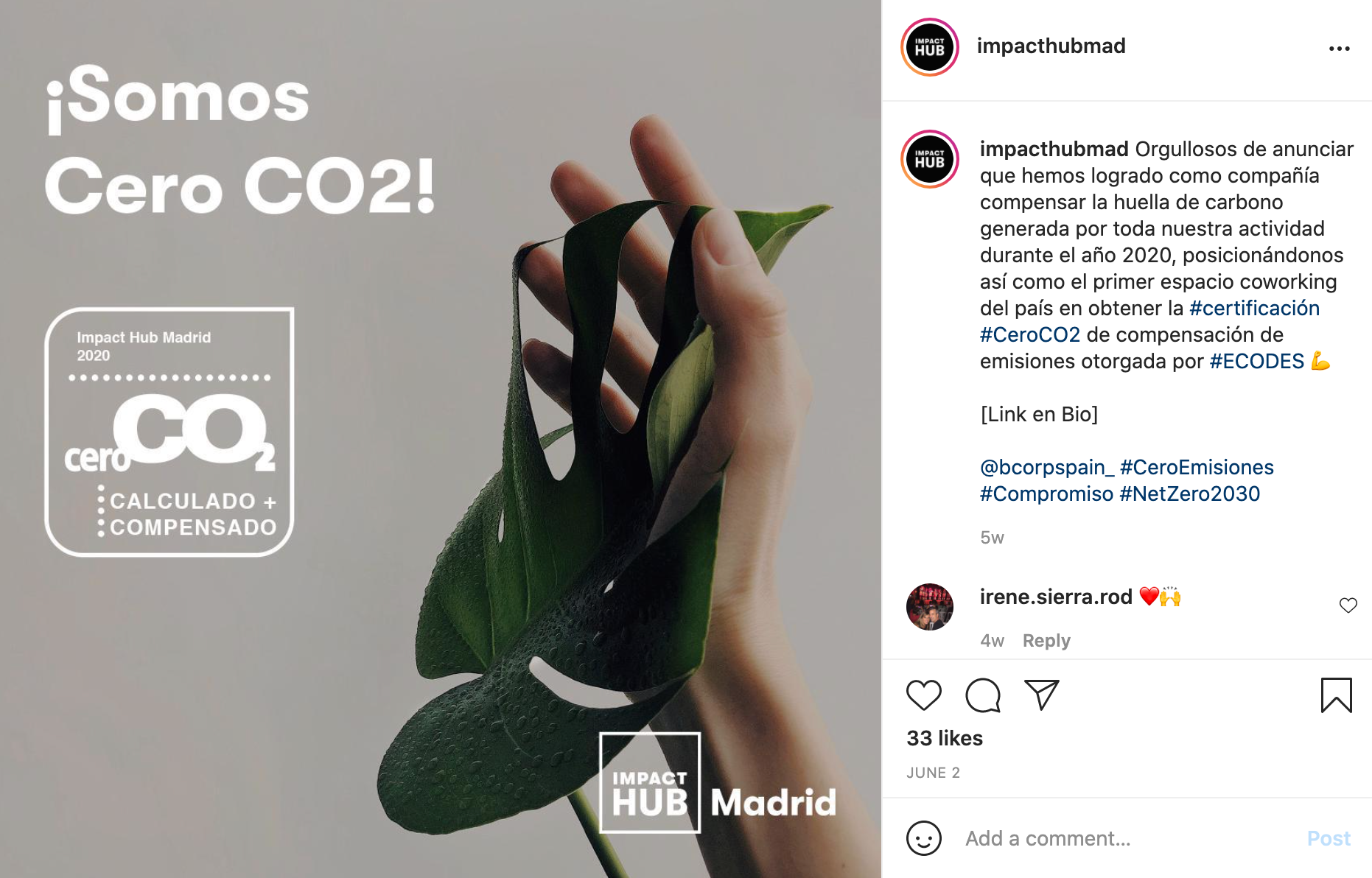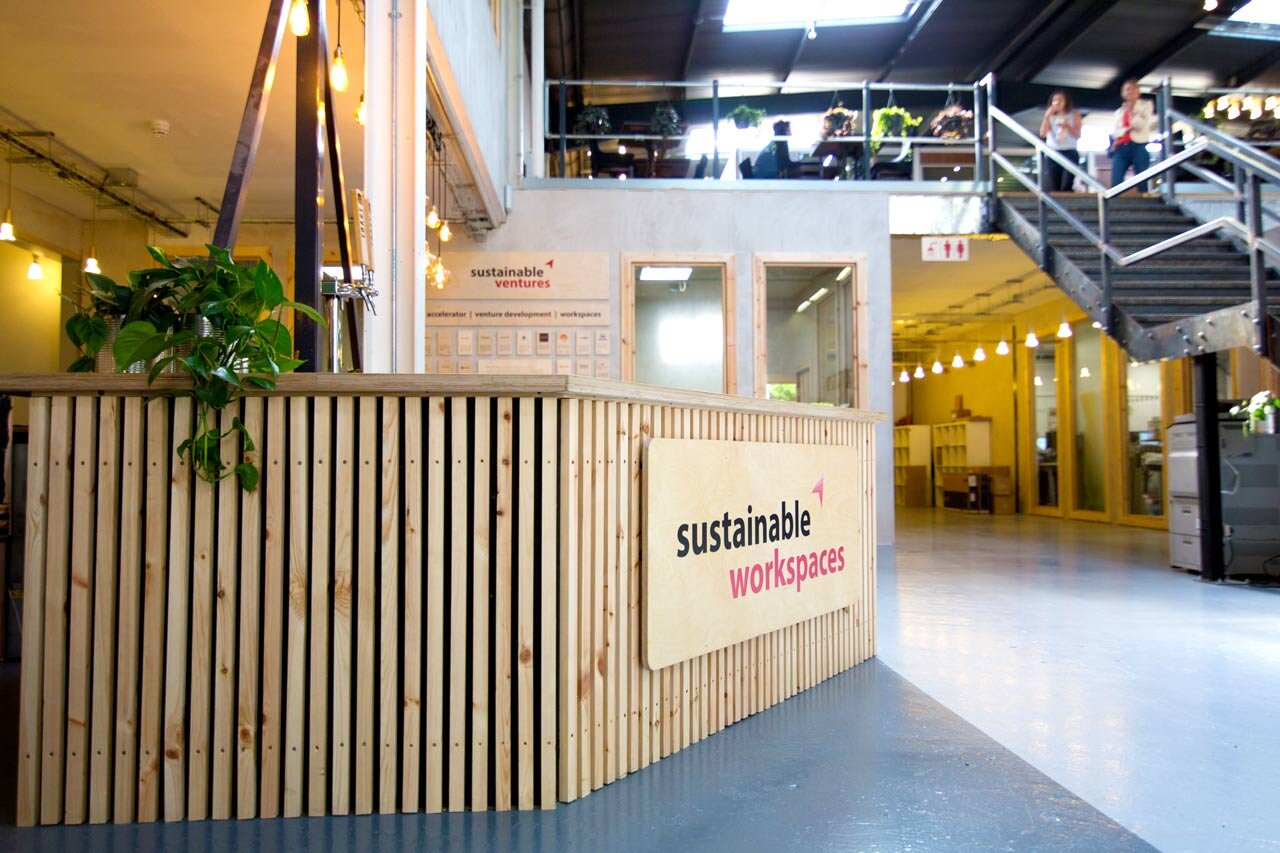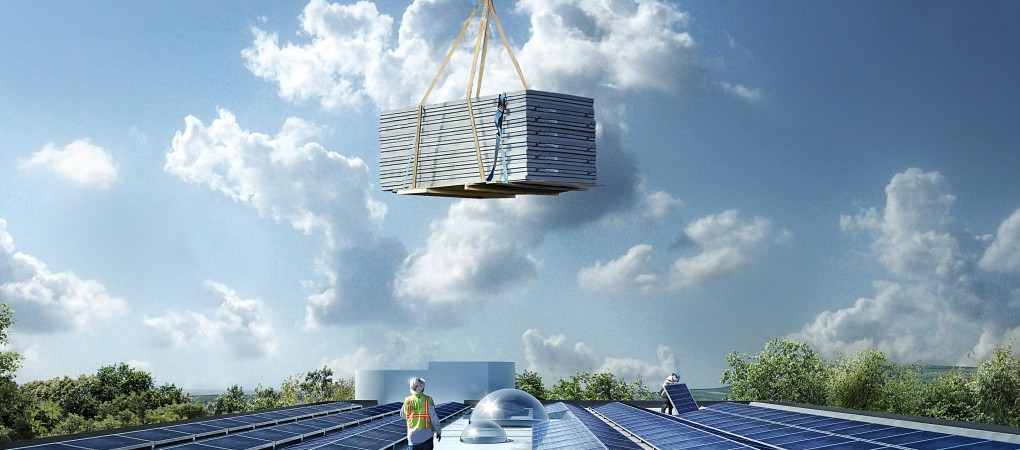10 Environmentally-Conscious Coworking Spaces
It’s difficult to define what an “environmentally-conscious coworking space” is in exact terms.
A space could be described as “eco-conscious” if it implements green infrastructure, such as solar energy panels, or if it’s built using locally sourced or renewable construction materials.
A coworking space can also be sustainable on the inside. Bike storage to encourage cycling to work, an effective recycling system and smart technology for energy efficiency all contribute towards an environmentally-conscious workspace.
Other coworking spaces are eco-conscious because, as well as adopting eco-friendly practices themselves, they also support and invest in other sustainable startups.
Real estate is responsible for 40% of the world’s carbon emissions.
Nowadays, coworking spaces that aren’t making practical commitments to becoming more green are seen as outdated. Talking about how important sustainability is to your organisation isn’t enough - people want to see your values in action.
Eco-conscious benefits
Being eco-conscious will win you more members. Increasingly, freelancers and businesses are becoming more aware of their carbon footprint and what they can do to reduce it.
To show their employees and customers they’re serious about corporate social responsibility, companies are more likely to opt for a workspace provider whose values align with their own.
Aside from that, eco-conscious coworking spaces also tend to be more economical. Using energy-saving appliances and buying from local vendors can save you a lot of cash!
If you want to make your space more environmentally-conscious but don’t know where to start, check out the pioneering coworking spaces below...
1. Sustainable Valley - Byron Bay, Australia
Sustainable Valley is one of Australia’s greenest coworking spaces. For starters, it’s situated in a place of natural beauty, a short stroll away from the beach, waterfalls and hinterland.
Of course, being in a natural environment doesn’t automatically make you eco-conscious. Fortunately though, Sustainable Valley is as green on the inside as it is on the outside.
For example, in 2019 its coworking community took part in Byron’s paddle out protest, a successful campaign against plans to drill for oil in the Great Australian Bight.

2. Impact Hub - Madrid, Spain
Impact Hub started out in 2005 in London.
Since then, it’s become the largest global network of impact entrepreneurship communities and operates coworking incubators in 55 countries around the world.
Impact Hub Madrid was the first coworking company in Spain to achieve B Corp status. The organisation is committed to reducing its own carbon footprint and that of its members, providing them with comprehensive guidance on how to create a Sustainability Strategy.

English caption translation:
“We are proud to announce that as a company we have managed to offset the carbon footprint generated by all our activity during 2020, thus positioning ourselves as the first coworking space in the country to obtain the #CeroCO2 emission compensation #certification granted by #ECODES.”
3. Fora - London, UK
Fora, a professional coworking operator with a growing London portfolio, has proudly committed to becoming Net Zero by 2030. The company’s plan covers new and existing buildings, operational carbon and embodied carbon, and the impact of energy consumed by the buildings’ occupants.
Residual carbon will be offset using a Gold Standard programme, and you can learn more about Fora’s carbon footprint and Net Zero project on the operator’s website.
4. CoCoon - Hong Kong
CoCoon’s vision reads as follows:
“We envision generations of pioneers leading the world into a sustainable future.”
As well as supporting and investing in sustainability-focussed businesses, sustainable design elements make the building one of the most eco-conscious and efficient in the region.
For example, the floors are made of bamboo and were coated using non-toxic paint. LED lighting is used throughout the building, as are drought-resistant plants.
5. Sustainable Workspaces - London, UK
Sustainable Ventures was founded in 2011 with the aim of addressing climate change and resource scarcity. To date, the organisation has launched 10 eco-conscious companies, invested in 20 and hosted dozens in its three Sustainable Workspaces locations.
It offers coworking, private offices, workshops (including areas for prototyping or light manufacturing), and collaboration space. Impressively, Sustainable Workspaces now represents Europe’s largest ecosystem in the cleantech and sustainability sector.

6. North Bridge Road Coworking Space - Singapore
North Bridge Road Coworking Space in Singapore was designed with sustainability in mind. Its mantra is “wellness at work”; of which sustainability plays a crucial role.
The space is home to an ecosystem of plants as well as entrepreneurs, which make for a healthier environment in which to work. Members can expect lush greenery and a bright, invigorating atmosphere that boosts creativity and productivity.
As with most eco-friendly coworking spaces, the lighting used within the building is energy-efficient, and appliances and furniture are built with refurbished materials.
7. InEDI Coworking - Milan, Italy
InEDI Coworking in Milano provides its members with everything they need to work sustainability in an office, including rentable bikes.
Furniture is made from recycled materials, electricity comes from exclusively renewable sources, and air systems and micro-filtering plants help minimise indoor pollution.
8. Powerhouse Kjørbo - Oslo, Norway
Although it was built in 1980, Powerhouse is one of the most eco-friendly workspaces in Norway, proving that you don’t need to build from scratch to be sustainable.
In fact, it’s been described as an “energy-positive” office because it generates more energy than it consumes. The exterior is characterised by carbonised wood and its roof is covered in solar panels. The energy used to heat and cool the building comes from a geothermic system situated in a park near the building.

9. Green Spaces - Denver, US
Many claim that Denver in Colorado boasts the best of both worlds: bustling urban life and the great outdoors (it’s close to the Rocky Mountains, if you didn’t know already). That’s why it’s proving to be such a popular destination for the growing digital nomad community.
As a relatively young city, Denver has lots of coworking spaces to choose from, including the innovative and eco-conscious Green Spaces. As well as being home to a community of eco-conscious entrepreneurs, it has 160 solar panels, on-site recycling and composting and, of course, it’s filled to the brim with indoor plants.
10. Grind - New York, US
While Grind in New York is no longer open and now operates under the Nomadworks banner, their commitment to sustainability still deserves a mention here. In 2013, it even employed its own Head of Global Cooling.
(How cool is that...sorry!)
To this day, Grind acts as a blueprint for coworking spaces that want to follow in its footsteps sustainability-wise. It featured the following eco aspects:
Low water usage faucets and toilets
Tru-stile doors (made of post-industrial recycled content)
CFL lighting (a type of energy-saving bulb)
Zero plastic utensils and cups
Recycled paper products
Furniture made from recycled materials
Sustainable cleaning products
Do you run an environmentally-conscious coworking space? We’d love to share your experience and tips with our community. Connect with us on Twitter at @Nexudus.
Related stories
Global Coworking Trends and Opportunities for 2025
Now well into 2025, the coworking industry continues to demonstrate strong momentum. With demand for coworking spaces remaining steady around the globe, it's clear that coworking is not just enduring—it's thriving. Let’s explore the major trends and opportunities shaping the global coworking landscape this year.
Creating Events that Drive Community Engagement in Coworking Spaces
Community is everything in coworking, but a genuine sense of connection between members doesn’t magically happen overnight or by chance. Often, meaningful relationships take intentionality, effort, and time to build, with events being an effective vehicle for bringing people together around shared interests, goals, and experiences, creating opportunities for collaboration, and a thriving coworking culture. This article looks at creating events that drive community engagement in coworking spaces.
Liz Elam: ‘Community is the number one amenity in coworking spaces’
A household name in the global coworking industry, Liz Elam, is the founder of one of the world’s best coworking event series: GCUC. Liz’s coworking roots began in 2010, when she established Link Coworking – a welcoming, affordable, and professional coworking space – in her hometown of Austin, Texas. Link Coworking achieved incredible success, expanding across three locations and becoming the fourth-largest coworking brand in Austin. It was sold in 2019, making Liz the first woman globally to exit a coworking brand.
Key Takeaways from the Coworking Alliance Summit 2025
Gathering online for the Coworking Alliance Summit last week, members of global coworking alliances, coworking spaces, and community leaders came together to navigate global issues, strengthen ties across the coworking industry, and work collectively towards future goals.
5 Ways to Reduce Noise in Open Offices & Coworking Spaces
Some people like working against a background of noise, while for others it’s their worst work nightmare. The truth is, our relationship with noise depends on our own preferences and the nature of our work.
Key takeaways from the Workspace Design Show 2025
London’s Workspace Design Show is undoubtedly one of the best coworking events of 2025. For one, the exhibition (held at Islington’s Business Design Centre) features a host of innovative and creative workspace design solutions tailored to the needs of modern workplaces.
What Is Workplace Management and Why Does It Matter?
There has always been a need for workplace management – the process of organising and optimising physical spaces, resources, and operations to support people’s needs. But, as 28% of UK working adults were reported to work in a hybrid capacity last autumn (by the Office for National Statistics), the question of ‘why workplace management matters’ is more critical than ever. Let’s look at the workplace management benefits for your operations.
10 Smart Goals for your Coworking Space: How to Set & Achieve Business Objectives
Coworking is synonymous with creativity, collaboration and productivity. Businesses and freelancers love coworking spaces because (by surrounding themselves with fellow workers) they’re more likely to achieve their goals. The coworking environment, while social, is set up to facilitate focused, distraction-free working.
The Best Coworking Events in 2025: Must-Attend Gatherings for Professionals
Managing coworking spaces is an all-encompassing role, often leaving operators, owners, and community managers with little time to focus on personal growth or draw inspiration from others.
10 Award-winning Coworking Space Designs: A Comprehensive Guide
Vibrant, contemporary workspaces create an undeniable ‘wow’ factor. Textured designs and ambient lighting make spaces feel warm and cosy, while natural elements and biophilic design features have literal mood-boosting properties.

